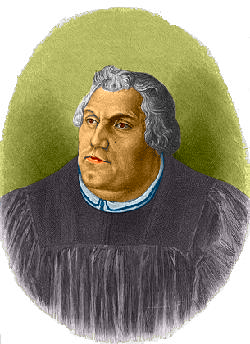On Luther’s Return to Augustine’s Doctrine of Divine Righteousness
Sun-young Kim, Luther on Faith and Love: Christ and the Law in the 1535 Galatians Commentary, Emerging Scholars (Minneapolis: Fortress Press, 2014).
In her book on Luther’s understanding of faith and love, Sun-young Kim refers to Augustine on a number of occasions. She does so in the introduction, for instance, in order to undermine a widespread but unfounded mischaracterization of the two figures: “Augustine, the theologian of love, and Luther, the theologian of faith.” The reality is a bit more complicated than that: “First, Augustine was a theologian of faith no less than of love, and Luther was a theologian of love no less than faith. Second, whereas Augustine employs love as the preeminent—but not exclusive—theological concept for the Christian’s relation to God, Lither uses faith” (3). I love Augustine. I disagree with him a fair bit, but I love him. And so it made me happy to see such mischaracterizations taken on.
But what is more, Kim taught me that Luther actually learned from Augustine at a critical moment in the birth of reformational theology. Although you can never distill things to a single moment or insight, Luther’s interpretation of the “righteousness of God” in Romans 1.17 is often identified as an important moment in his theological reorientation. Rather than understanding this reference to God’s righteousness as the righteousness by which God is himself righteous, and concomitantly as the righteousness that one must satisfy in order to be holy oneself, Luther came to understand this righteousness as the righteousness by which God makes sinful human beings righteous. Or, as Kim puts it: “Luther declares that the righteousness of God in Romans 1:17 is not the kind of righteousness by which God judges and punishes each person without exception but the kind of righteousness by which God in his mercy makes sinners righteous” (122).
The interesting thing is that Luther got this straight from Augustine! It seems that Luther scholars have known this for a long time, but it was news to me. Here is Kim’s footnote on the subject (122n12; I have scrubbed it of citations, so go look it up if you need those):
==================================
Follow @WTravisMcMaken
 |
| Martin Luther [Public domain / {{PD-US}}], via Wikimedia Commons |
But what is more, Kim taught me that Luther actually learned from Augustine at a critical moment in the birth of reformational theology. Although you can never distill things to a single moment or insight, Luther’s interpretation of the “righteousness of God” in Romans 1.17 is often identified as an important moment in his theological reorientation. Rather than understanding this reference to God’s righteousness as the righteousness by which God is himself righteous, and concomitantly as the righteousness that one must satisfy in order to be holy oneself, Luther came to understand this righteousness as the righteousness by which God makes sinful human beings righteous. Or, as Kim puts it: “Luther declares that the righteousness of God in Romans 1:17 is not the kind of righteousness by which God judges and punishes each person without exception but the kind of righteousness by which God in his mercy makes sinners righteous” (122).
The interesting thing is that Luther got this straight from Augustine! It seems that Luther scholars have known this for a long time, but it was news to me. Here is Kim’s footnote on the subject (122n12; I have scrubbed it of citations, so go look it up if you need those):
Luther accredits this liberating illumination to Paul, adding that it is affirmed by Augustine. Refering to Augustine’s On the Spirit and the Letter, Luther describes that “therefore blessed Augustine writes . . . : ‘It is called the righteousness of God because by imparting it He makes righteous people . . .’ . . . One of Luther’s Table Talks also reveals that Augustine’s concept of the righteousness of God reaffirmed his realization: “‘That expression ‘righteousness of God’ was like a thunderbolt in my heart. When under the papacy . . . I thought at once that this righteousness was an avenging anger, namely, the wrath of God. I hated Paul with all my heart when I read that the righteousness of God is revealed in the gospel [Rom. 1:16, 17]. Only afterward, when I saw the words that follow . . . and in addition consulted Augustine, was I cheered. When I learned that the righteousness of God is his mercy, and that he makes us righteous through it, a remedy was offered to me in my affliction.’”Leave it to an Augustinian to actually dig back into Augustine and come up with something big…
==================================
Follow @WTravisMcMaken


Comments